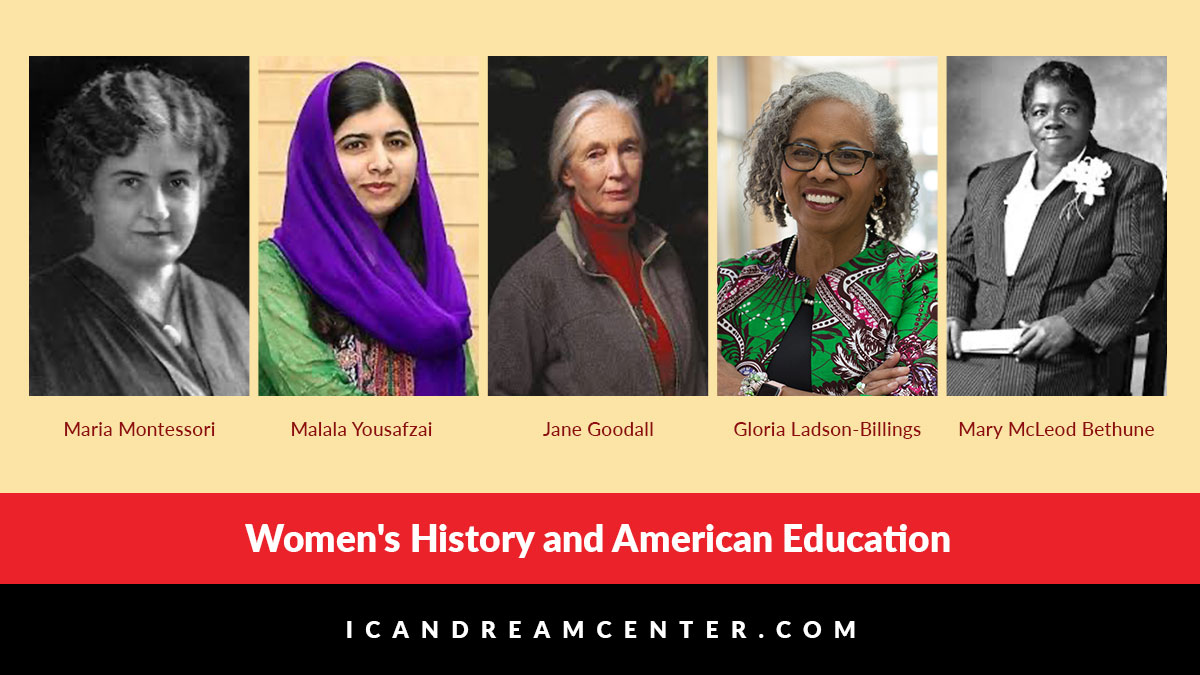
Women’s History and American Education
Throughout history, women have been pioneers and leaders in the field of education and teaching. From the first female university professor to the countless female educators making an impact in classrooms today, women have played a vital role in shaping the way we think about education and learning. In this blog post, we’ll take a look at some of the most influential female leaders in education and teaching and explore their contributions to the field.
- Maria Montessori was an Italian physician and educator who developed the Montessori method of education, a child-centered approach that emphasizes self-directed learning and individualized instruction. Montessori’s ideas revolutionized early childhood education and her approach is still widely used today. Montessori schools can be found all over the world and her work has had a lasting impact on the way we think about education and child development.
- Malala Yousafzai is a Pakistani activist for female education and the youngest Nobel Prize laureate. After surviving an assassination attempt by the Taliban for advocating for girls’ education in Pakistan, Malala became an international advocate for education and women’s rights. She founded the Malala Fund, which aims to provide girls around the world with access to education. Malala’s bravery and dedication to education have inspired countless people around the world.
- Jane Goodall is a British primatologist, anthropologist, and UN Messenger of Peace. She is best known for her groundbreaking work studying chimpanzees in Tanzania and her advocacy for animal welfare and environmental conservation. But Goodall has also been a leader in education and teaching, establishing the Jane Goodall Institute’s Roots & Shoots program, which aims to empower young people to make positive changes in their communities through education and action.
- Gloria Ladson-Billings is an American education researcher and critical race theorist. She is best known for her work on culturally responsive teaching and the development of the concept of “culturally relevant pedagogy,” which emphasizes the importance of incorporating students’ cultural backgrounds into the teaching and learning process. Ladson-Billings has been a major influence on the way we think about diversity and inclusion in education, and her work continues to shape the field today.
- Mary McLeod Bethune was an American educator and civil rights leader. She founded the National Council of Negro Women and was appointed by President Franklin D. Roosevelt to head the National Youth Administration’s Division of Negro Affairs, becoming the first African American woman to hold a high-ranking government position. Bethune was a passionate advocate for education and founded the National Association for the Advancement of Colored People (NAACP) in order to help promote educational opportunities for African Americans.
These are just a few of the many female leaders who have made a lasting impact in education and teaching. From Maria Montessori’s child-centered approach to education to Malala Yousafzai’s advocacy for girls’ education, these women have inspired generations of educators and learners. As we continue to strive for greater equity and inclusion in education, it’s important to recognize and celebrate the contributions of women leaders in the field.
